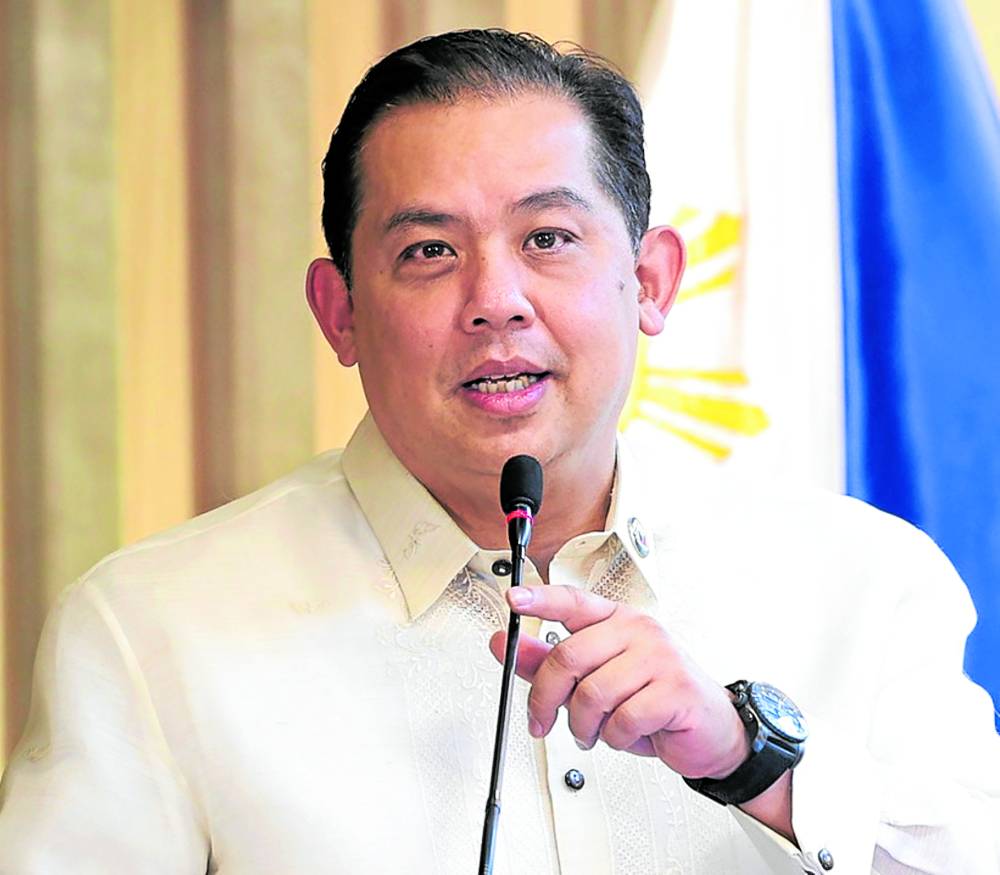
House Speaker Martin Romualdez — Photo from House of Representatives Facebook page
MANILA, Philippines — Despite concerns about amending the 1987 Constitution by inserting the phrase “unless otherwise provided by law,” Speaker Ferdinand Martin Romualdez has maintained that this move will make the government more flexible to global economic changes.
Romualdez, during the Department of Foreign Affairs forum on Tuesday, touched on the controversial economic Charter change (Cha-cha) pushed by the House, which some University of the Philippines School of Economics (UPSE) professors have warned about.
According to the Speaker, using this phrase allows the government to easily adjust the rate of foreign ownership in the industries of basic education, public utilities, and advertising.
“We also recognize the need for more dynamic economic policies. Thus, we are advocating for amendments to specific sections of Articles twelve, fourteen, and sixteen of the Philippine Constitution,” Romualdez told government officials and diplomats present during the forum.
“These amendments aim to introduce the phrase “unless otherwise provided by law,” granting Congress the ability to make legislative adjustments swiftly in specific economic sectors in response to global and local economic shifts,” he added.
Romualdez assured the audience that the House has conducted extensive hearings on the matter and has ascertained that the move will ultimately benefit the country.
“Our extensive hearings on this matter have illuminated the broad benefits these amendments would bring, enabling more flexible, responsive governance,” he said.
Just recently, past and present UPSE professors have released a 42-page position paper that stated that the proposed amendments — or the insertion of the phrase “unless otherwise provided by law” in three sections in the Constitution — would make Congress vulnerable to lobbying.
Under the House-approved Resolution of Both Houses (RBH) No. 7, the “unless otherwise provided by law” clause would be placed in the 1987 Constitution’s Article XII, Section 11; Article XIV, Section 4; and Article XVI, Section 11.
This means that if both the House and the Senate agree on the provisions of RBH No. 7, and if it is ratified in a plebiscite, Congress will have the power to decide the percentage of foreign ownership in the industries mentioned.
READ: House approves RBH 7 on third reading
Previously, retired Chief Justice Reynato Puno also urged the House to refrain from using the term “unless provided by law” in amending the 1987 Constitution because these items may eventually be repealed.
Puno explained that amendments made through legislation—or enacted bills that would specify how much foreign businesses can own in the industries that would be opened—may be questioned for their constitutionality.
Then, former lawmaker and current Bayan Muna chairperson Neri Colmenares warned that the legislature would supposedly be “buffeted by intense lobbying and lobby money” from companies who want to insert favorable provisions — because Congress can possibly hold the power of determining the foreign ownership rates.
READ: Solons wants key phrase retained in constitutional amendments
Economic Cha-cha advocates like Marikina 2nd District Rep. Stella Quimbo and PBA party-list Rep. Migs Nograles on the other hand have maintained that inserting this phrase is important because it ensures that changes to foreign ownership rates would no longer require amending the Constitution — which tends to be a tedious process.